I - and all of my students - have also had LOTS of trouble installing mbientwear, and using it with Python!
I did install VStudio. But failed to install warble OR mbientware.
Three quick questions to get me started:
1. mbientware should work with Python 3, correct?
2. And since the Tutorial mentions that a Matlab licence is required to run mbient software on Windows 10. Seriously - do I need a Matlab licence if I want to work with Python????
3. Why does mbientlabs not provide installable wheels-packages, just like Christoph Gohlke? It would make life a LOT easer for mbient users.
Attached images show the error-messages I get on installation.
thomas
And since the Tutorial mentions that a Matlab licence is required to run mbient software on Windows 10. Seriously - do I need a Matlab licence if I want to work with Python????
No, this is for people who want to use Matlab with our sensors. Do you want to use Matlab with our sensors?
Why does mbientlabs not provide installable wheels-packages, just like Christoph Gohlke? It would make life a LOT easer for mbient users.
We cater to all different developers so our platform is very powerful. But it is for people who are confident coders. If you are not a developer, use our free Apps.
I would regard myself as a confident coder (25 years of experience coding Pascal, Fortran, C, Python, Matlab)
But I don't like to debug other people's software.
... and the error-message when installing pymetawear is attached
Please provide details and screenshot of every single step in the tutorial (comparing your setup against the tutorial setup). Try to find out where you diverge. Start from scratch if you have to. If you don't provide proper information, your thread will be deleted.
For those with Win10 installation issues, I have setup a binary wheels distribution on test pypi for the win_amd64 platform. All you need to install is the x64 VS2017 redistributable package and be on at least Version 1709 (Fall Creators Update).
Comments
I - and all of my students - have also had LOTS of trouble installing mbientwear, and using it with Python!
I did install VStudio. But failed to install warble OR mbientware.
Three quick questions to get me started:
1. mbientware should work with Python 3, correct?
2. And since the Tutorial mentions that a Matlab licence is required to run mbient software on Windows 10. Seriously - do I need a Matlab licence if I want to work with Python????
3. Why does mbientlabs not provide installable wheels-packages, just like Christoph Gohlke? It would make life a LOT easer for mbient users.
Attached images show the error-messages I get on installation.
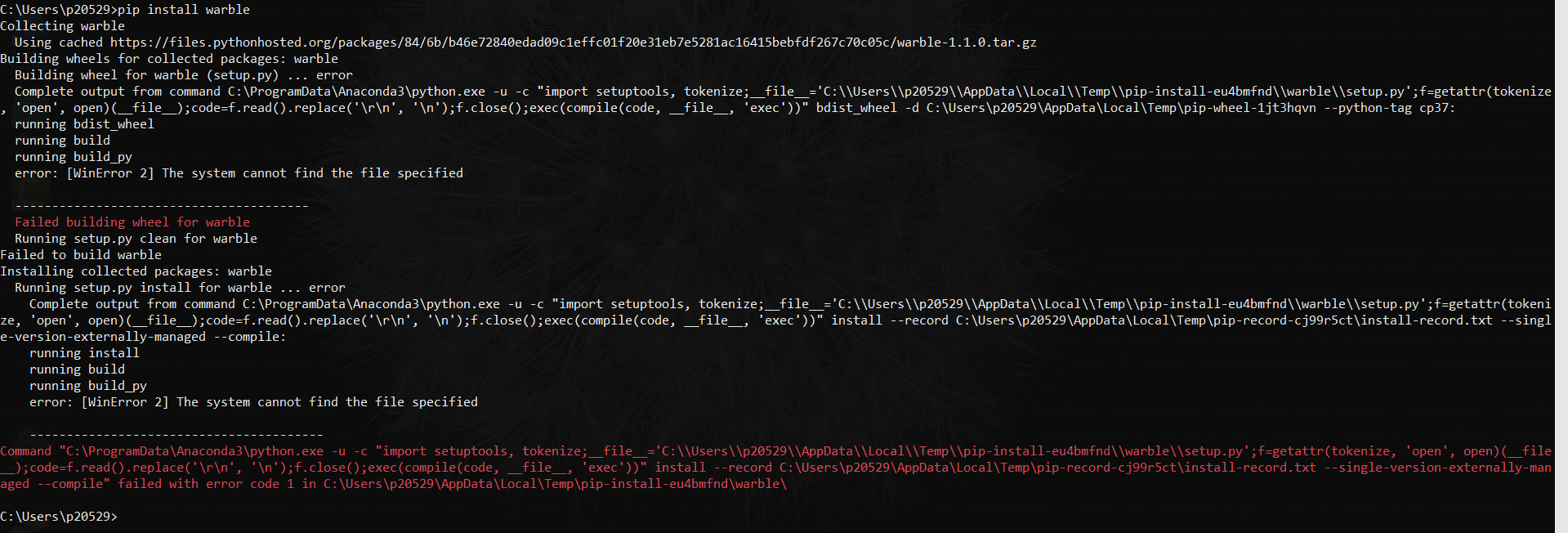
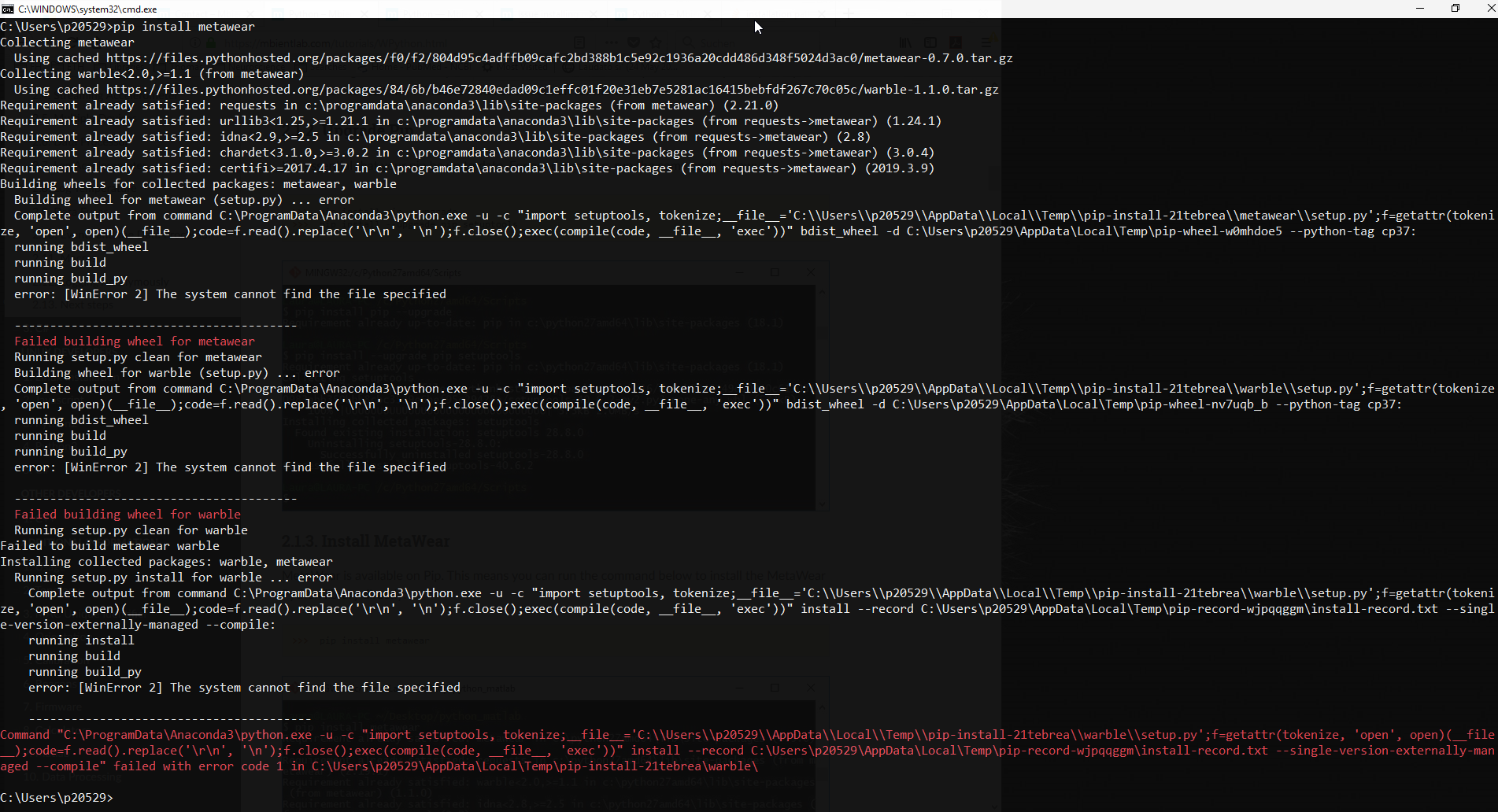
thomas
Yes, this is in our tutorials already: https://mbientlab.com/tutorials
No, this is for people who want to use Matlab with our sensors. Do you want to use Matlab with our sensors?
We cater to all different developers so our platform is very powerful. But it is for people who are confident coders. If you are not a developer, use our free Apps.
I would regard myself as a confident coder (25 years of experience coding Pascal, Fortran, C, Python, Matlab)
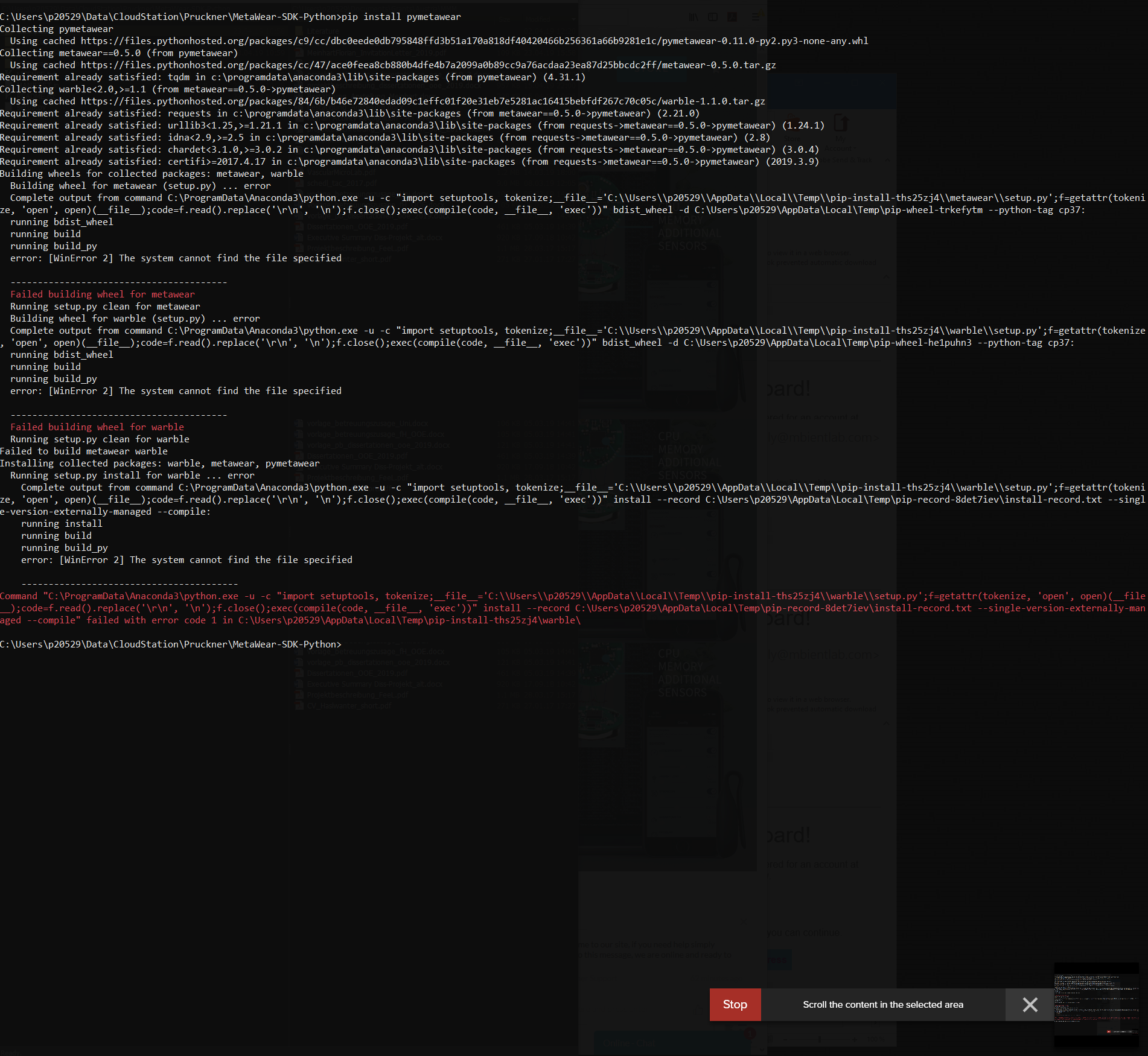
But I don't like to debug other people's software.
... and the error-message when installing pymetawear is attached
Our stuff works fine; I just tested it myself.
You need to follow the tutorials: https://mbientlab.com/tutorials/Windows.html
Attached images show the error-messages I get on installation.
Can you run MSBuild from the command line?
https://mbientlab.com/tutorials/Windows.html#postrequisites
Follow the tutorials line by line: https://mbientlab.com/tutorials/Windows.html
I tried installing warble v1.2.0 and still get an error:
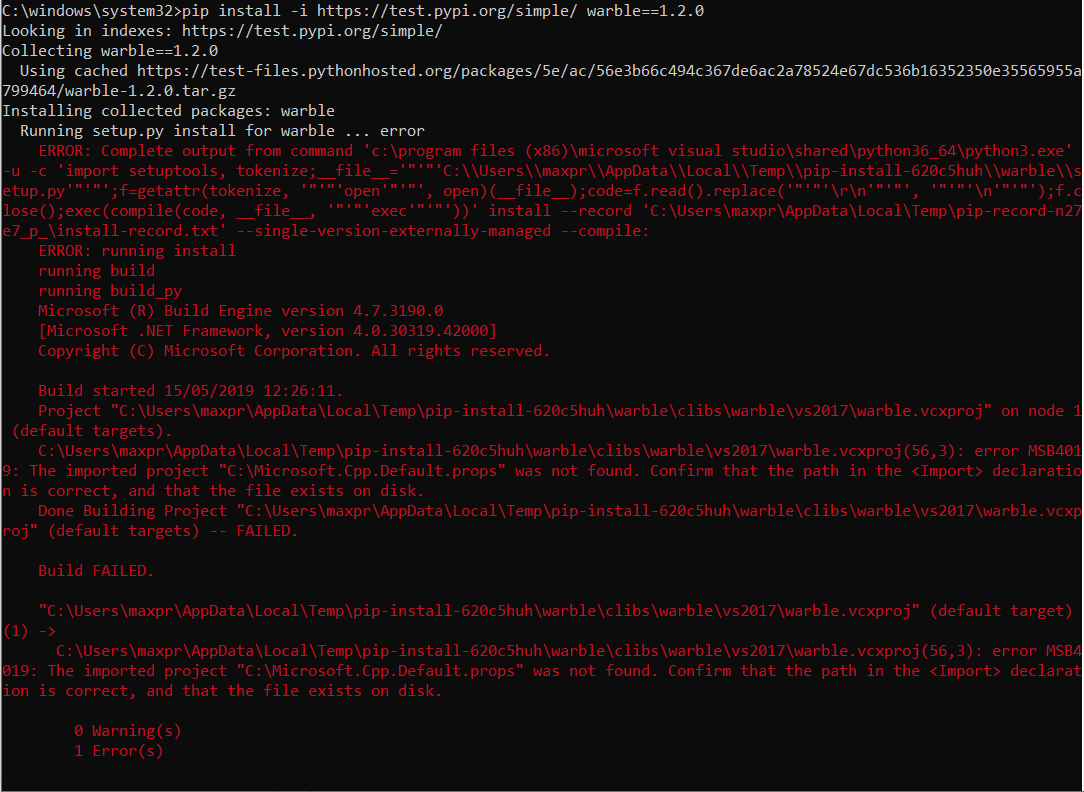
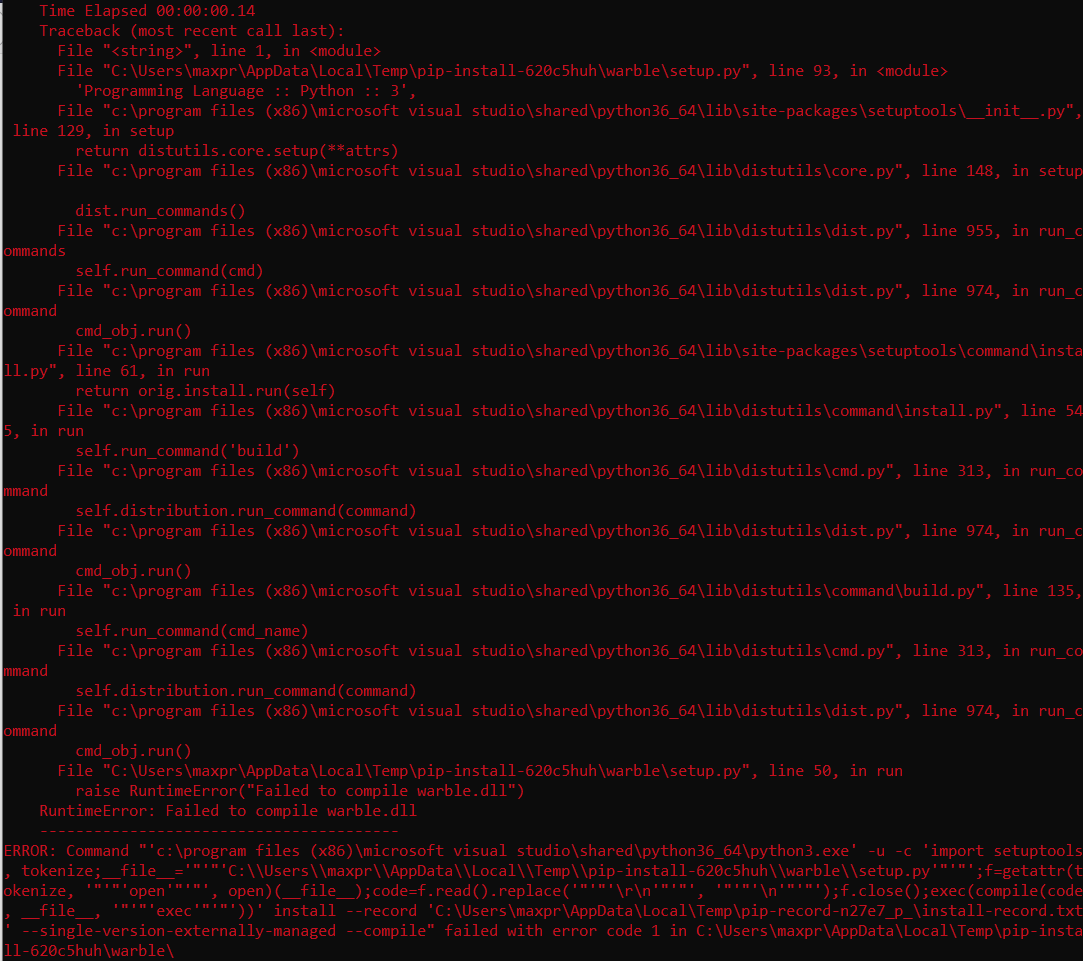
I followed all the steps from the tutorial and have no clue what to change. I´d appreciate any help.
Delete everything and start over. The tutorial is key.
Did you install the correct visual studio packages?
I downloaded the warble.sln file from the provided link and tried it with MSBuild (version 4.7.3190.0) but there are still 4 errors.
What are these 4 errors?
Here is what I got in the command window:
It's the same error 4 times, why not read it try to fix it?
You gotta try and fix your issues if you want to be a competent developer.
Let me google it for you:
1. https://stackoverflow.com/questions/16092169/why-does-msbuild-look-in-c-for-microsoft-cpp-default-props-instead-of-c-progr
2. https://social.msdn.microsoft.com/Forums/sqlserver/en-US/0bb7842b-8ca0-42c5-ac2e-1732d127a1eb/the-imported-project-quotcmicrosoftcppdefaultpropsquot-was-not-found-in-visual-studio-2017?forum=msbuild*
You need to set your MSBUILD path....again this is in the tutorial instructions...
I have set my PATH correctly, compared to the tutorial.
Go through the tutorial line by line, and find out where you diverge.
I´ve went through the tutorial more than once. Do you have any other advice?
Find out where you diverge....
Laura posted two links from stack overflow. Did you try their suggestions?
Yes, but did not change anything.
Please provide details and screenshot of every single step in the tutorial (comparing your setup against the tutorial setup). Try to find out where you diverge. Start from scratch if you have to. If you don't provide proper information, your thread will be deleted.
Here are my screenshots step by step:
Windows Version:
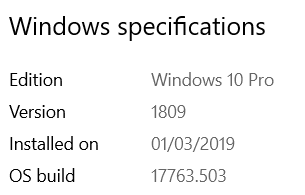
VS Packages:
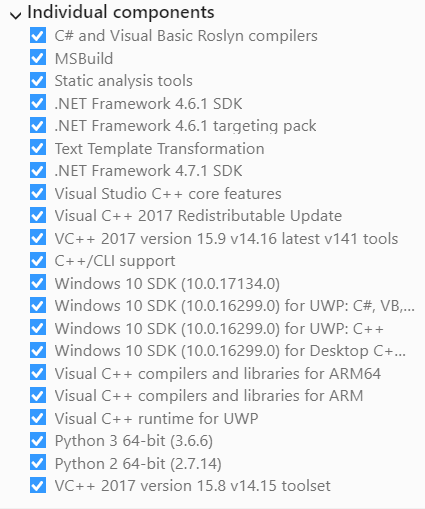
PATH:

platform.winmd is installed:

Computer supports Bluetooth Low Energy:
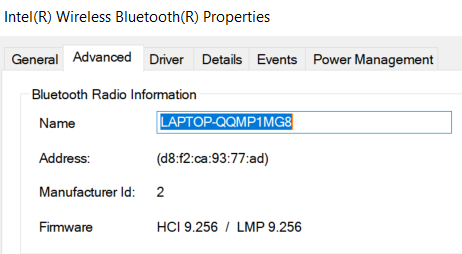
I´m running Python 3.6:

PIP is up to date:

And then I fail to install metawear.
does it work with python2?
I don´t want to use Python 2, so I didn`t try it.
my tutorial clearly says do python2 first...maybe you need to follow directions.
I don’t think that Python 2 and/or Python3 says it clearly..
will be closing this thread if no relevant updates
I am sorry but I can't find that..
(Anyway, since support for Python 2 ends with 2019 this requirement wouldn't be appropriate.)
Last I checked, it's 2019...
@FloMeinhart, @Markus
Check out what @fharry wrote: https://mbientlab.com/community/discussion/2828/failed-building-wheel-for-metawear#latest
For those with Win10 installation issues, I have setup a binary wheels distribution on test pypi for the win_amd64 platform. All you need to install is the x64 VS2017 redistributable package and be on at least Version 1709 (Fall Creators Update).
pip install -i https://test.pypi.org/simple/ metawear==0.7.1b0